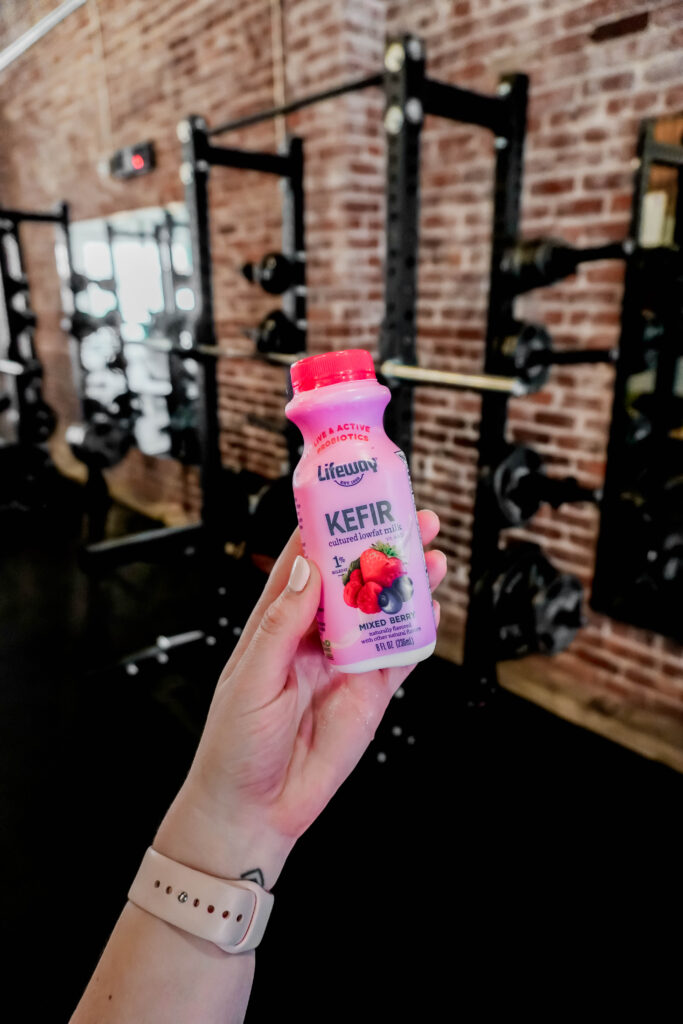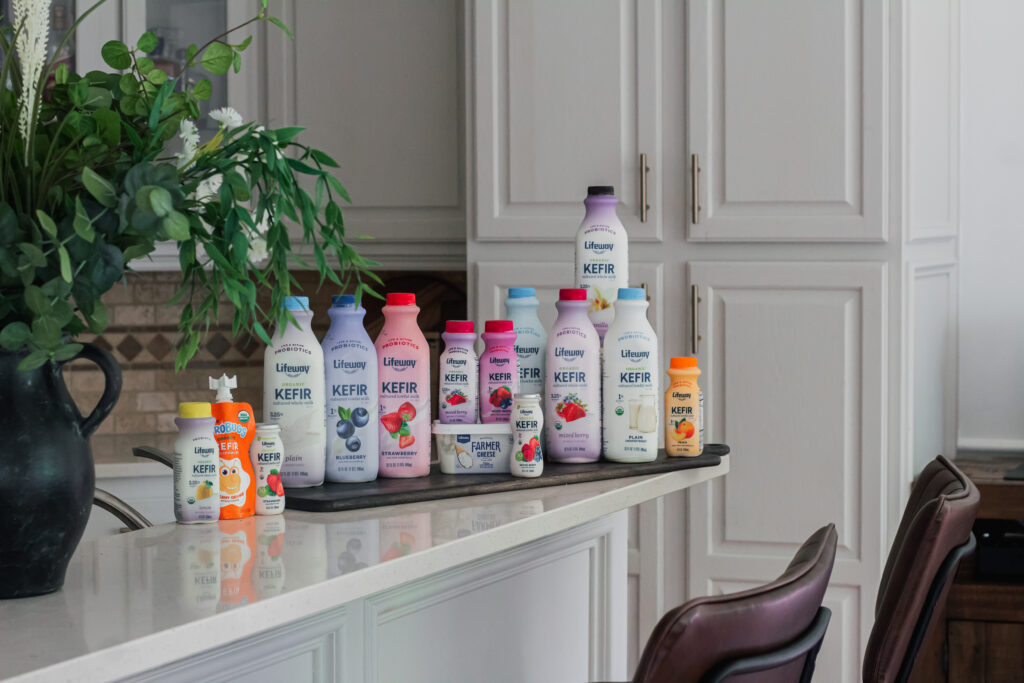The secret to a great workout or competing successfully in an athletic event may come down to the foods you choose. When it comes to avoiding fatigue and performing better at the next event or workout, a focus on nutritional pre- and post-activity is a key component to success.
Proper recovery foods and beverages (within 30 minutes of exercise) work to replace fluid and nutrients to repair and replenish muscles, maintain strong bones, and keep the body from experiencing fatigue the next time. Dairy beverages are getting noticed as an ideal recovery drink, with research pointing to their unique blend of fluid, protein, vitamins, and minerals.
Consuming kefir takes it a step further as it’s a nutrient-rich source of probiotics, giving our body the fuel and microbiome support it needs for peak performance. Research is finding that those who include kefir in their recovery plan may have less muscle soreness and damage, as well as a decrease in overall inflammation and oxidative stress.

Here are Five Reasons Why Lifeway Kefir Should Be Part of Your Recovery Plan:
1. Probiotics – Kefir contains 12 live and active probiotic cultures that research shows may enhance athletic performance. Athletes typically require higher nutrient absorption, and the probiotics may increase antioxidant, protein, and fat absorption that is important for energy levels pre-workout, during your workout, and post-workout. In addition, research suggests that probiotics may strengthen the gut’s lining and lower inflammation throughout the body, resulting in fewer stomach problems during exercise.
2. Protein – Kefir is a good source of protein, which is important in recovery to reduce muscle breakdown, increase the body’s ability to build new muscle, and work with carbohydrates to restore muscle glycogen, helping to improve body composition over time.
3. Carbohydrates – As a natural source of carbohydrates, Kefir helps to refuel and restore muscle glycogen – the predominant fuel source for the body during exercise.
4. Vitamins and minerals – Kefir contains calcium, vitamin D, and magnesium, the three key nutrients for bone health and often not found in other sports drinks. Athletes need and may benefit from extra amounts of calcium, vitamin D, and magnesium due to their risk for illness and injuries such as stress fractures. In addition, studies have shown lower rates of bone fractures in those that consume fermented dairy, like Lifeway Kefir. In addition, many of the nutrients found in kefir play a role in the metabolic pathways that provide the body with energy.
5. Fluid and electrolytes – Kefir contains fluid and the key electrolytes sodium, calcium, potassium, and magnesium to replenish what is lost in sweat and to rehydrate the body.
Discover our diverse selection of Kefir products HERE.
Find our products near you by using our Where to Buy tool.
